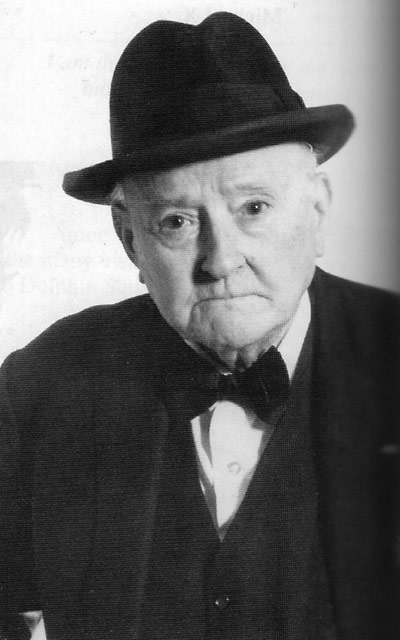Leonard Plugge est un homme d'affaires, un homme politique britannique, ainsi qu'un grand passionné de radio. En tant que principal concurrent commercial de la BBC, il connaît un grand succès avec sa société IBC dont l'activité consiste à acheter du temps d'antenne à différentes radios du continent, pour offrir une programmation légère, beaucoup moins guindée aux auditeurs anglais. Des contrats sont passés avec des stations émettrices en Normandie, Toulouse, Paris et partout ailleurs en Europe, qui sont reçues au Royaume Uni.
Du fait de sa proximité, Radio Normandie bénéfice d’une plus grande audience dans le sud de l'Angleterre que celle de la BBC, le dimanche notamment, probablement dû au fait que la BBC fait “relâche” durant les heures de culte de l'église. Le reste du dimanche, la BBC diffuse une musique austère, des chants religieux et des causeries rébarbatives au ton moral élevé, alors que les émissions de l’IBC proposent plutôt un divertissement musical et léger. Les émissions anglaises de Plugge deviennent de puissantes sources de revenus pour les stations associées car les autorités françaises ont voté de nouvelles lois limitant considérablement les possibilités pour les entreprises privées étrangères de diffuser depuis la France.
Cet homme excentrique avait compris l'importance de la radio commerciale interdite dans son pays et conscient de l'importance d'un marché potentiel, a créé l'International Broadcasting Company. De passage en France, il rencontre Fernand Le Grand et entame des négociations pour pouvoir diffuser des émissions à destination de ses compatriotes avec l'émetteur de Radio Normandie qui devient la première station rivale à entrer en compétition avec la BBC : "Plusieurs centaines de milliers d'anglais écoutent votre poste d'émission et plus d'un quart accepte de payer bénévolement un shilling par an".
Un récent micro-trottoir organisé à Fécamp par la radio anglaise "BBC 4" n'a recueilli auprès des Fécampois, on s'en doute, aucun témoignage du passage du capitaine dans leur ville. D'ailleurs, bien peu de Fécampois savent en effet que leur cité abritait avant-guerre une radio périphérique anglaise puissante, comparable de nos jours à RTL ou jadis Europe 1. Quant au Capitaine Plugge, retiré en Californie, il est décédé discrètement à 92 ans en 1981.
Captain Leonard F. Plugge,
a great pioneer of commercial radio
Le Capitaine Leonard F. Plugge, un grand
pionnier de la radio commerciale > |
Leonard Plugge is a British businessman, politician, and radio enthusiast. As the BBC's main commercial competitor, he enjoyed great success with his company IBC, whose activity consisted of buying airtime from various radio stations on the continent, to offer light, much less stilted programming to English listeners. Contracts are made with broadcasting stations in Normandy, Toulouse, Paris and elsewhere in Europe, which are received in the United Kingdom.
Due to its proximity, Radio Normandie benefits from a larger audience in the south of England than that of the BBC, particularly on Sundays, probably due to the fact that the BBC "takes a break" during church hours. 'church. The rest of Sunday, the BBC broadcasts austere music, religious songs and forbidding talks with a high moral tone, while the IBC broadcasts offer more light, musical entertainment. Plugge's English broadcasts are becoming powerful sources of revenue for associated stations as French authorities have passed new laws significantly limiting the possibilities for foreign private companies to broadcast from France.
This eccentric man understood the importance of commercial radio, which was banned in his country, and realizing the size of a potential market, established the International Broadcasting Company. Passing through France, he met Fernand Le Grand and began negotiations to be able to broadcast programs for his compatriots with the Radio Normandie transmitter which became the first rival station to enter into competition with the BBC:
"Several hundred thousand English people listen to your broadcast and more than a quarter agree to pay one shilling a year voluntarily".
A recent micro-sidewalk organized in Fecamp by BBC 4 did not collect from the Fecampois, we suspect, any testimony of the passage of the captain in their city. Indeed, very few inhabitants of Fecamp know that their city was home to a powerful English peripheral radio, comparable to RTL or Europe 1. As for Captain Plugge, retired in California, he died discreetly at 92 years of age in 1981.
 |